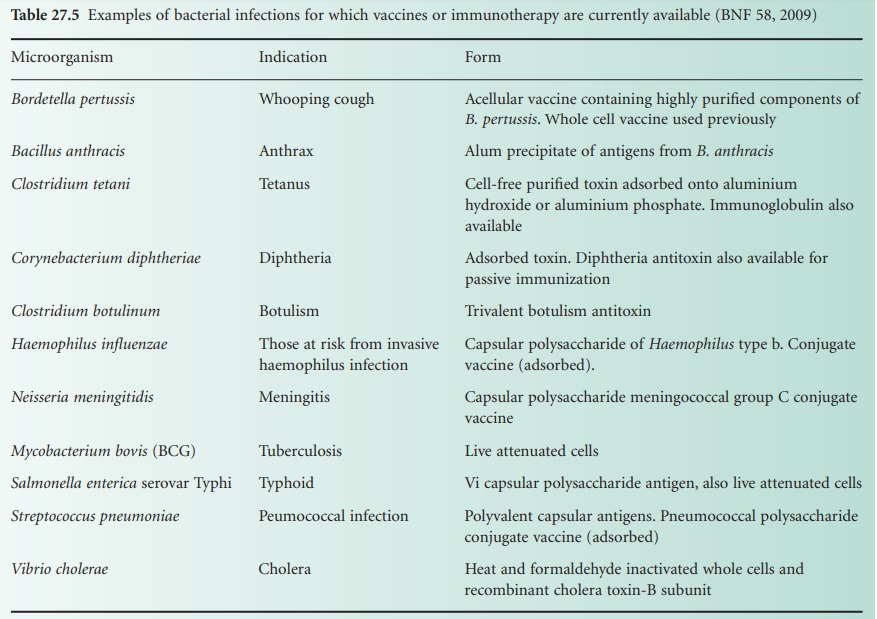Vaccines and Immunotherapies
| Home | | Pharmaceutical Microbiology | | Pharmaceutical Microbiology |Chapter: Pharmaceutical Microbiology : Alternative Strategies For Antimicrobial Therapy
Vaccines to prevent both bacterial and viral diseases have been available for many years and in some cases their use predates that of antibiotics. In fact, for some diseases such as whooping cough and diphtheria they are still the most important form of infection control and highlight the saying that prevention is better than a cure.
VACCINES AND
IMMUNOTHERAPIES
Vaccines to prevent both bacterial and viral diseases
have been available for many years and in some cases their use predates that of antibiotics. In fact, for some diseases such as whooping cough
and diphtheria they are still
the most important form of infection control
and highlight the saying that prevention is better than a cure.
Table 27.5 illustrates the range of bacterial vaccines
currently available in the
UK and some
of these such
as diphtheria, tetanus, pertussis, meningococcal, haemophilus and BCG vaccines (alongside viral
vaccines) are an integral part
of the healthcare programme for the early years of life.

The recent explosion of knowledge in the area of molecular biology has opened up new avenues for the development of effective vaccines. DNA and viral vector vaccines are examples of novel approaches currently being studied. A number of vaccine technologies have been explored recently aimed at Ps. aeruginosa which causes severe opportunistic infections of wounds, the respiratory tract, the cornea and the urinary tract. Some patients can be identified as being at particular risk of contracting infections caused by this pathogen and they include those with cystic fibrosis, burns patients and those who are in intensive care, especially if they are mechanically ventilated. These, and others, may therefore benefit from an effective vaccine with a view to preventing infection from occurring. A recent review has argued that from a scientific standpoint it is not a problem to design vaccines containing specific bacterial antigens and demonstrate their effectiveness in animals and preclinical trials. There have however, been issues with conducting meaningful clinical trials, due, among other things, to a lack of patients available at a given time to provide appropriate comparisons. Similar arguments have been put forward about the development of better vaccines to replace BCG for protection against tuberculosis. In this case the outcome of the investigation would not be known until the clinical trial had been in progress for many years.
Related Topics
